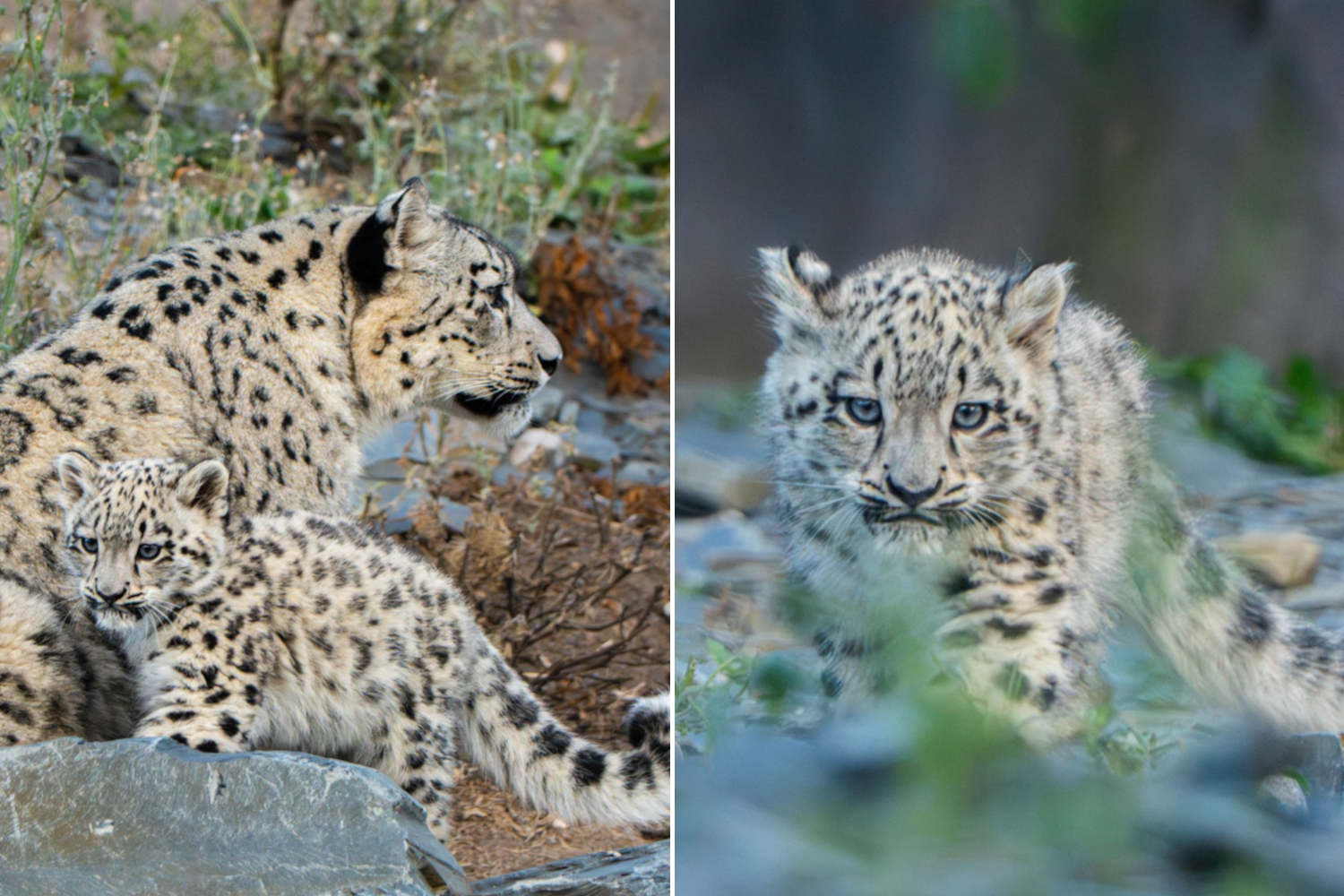A snow leopard cub named Bheri has been born at Chester Zoo, a rare event hailed as a conservation success—but also a reminder of the limits of captivity.

@chesterzoo/Instagram
A snow leopard cub named Bheri has become the newest resident of Chester Zoo, marking a milestone the institution hasn’t celebrated in nearly a century. Born to Nubra and Yashin, two adults taking part in a European conservation program, the tiny cub spent her first ten weeks hidden safely inside a den. Only recently did cameras capture her tentative steps into the carefully designed enclosure that now serves as her world.
The choice of name came not from the zookeepers but from the public. Thousands of visitors and online followers suggested ideas, and in the end, the decision landed on Bheri, after a river flowing through the Himalayas. The name nods to those distant peaks—landscapes this cub will never see outside of photographs.
The reality behind the delight
The arrival of Bheri has made headlines and trended across social platforms, celebrated as a heartwarming success story. And indeed, there is something captivating about watching a rare cub stumble about on unsteady legs. But behind those viral images lies a sobering truth: Bheri will spend her entire life within the boundaries of a zoo, never knowing the solitude or the freedom of the high ridges of Central Asia.
Her role, in practice, is twofold. She stands as a symbol of human-managed conservation efforts, but also as a living attraction—drawing the eyes of daily visitors, cameras, and curious onlookers. Her habitat may be designed with care, but it remains a reconstruction, a simulacrum of the rugged mountains where snow leopards thrive as elusive predators.
In the wild, snow leopards are often called the “ghosts of the mountains”, masters of camouflage among rocks and snow. Scientists estimate that only about 4,000 individuals remain in the wild, threatened by poaching, habitat loss, and climate change. The birth of Bheri is thus presented not merely as a charming story, but as a testament to international cooperation and scientific determination.
The landscapes she will never know
And yet, this very birth invites unease. Are we truly protecting the species, or simply adjusting to a world where their survival is ensured only behind fences? Conservation in captivity can be framed as success, but it risks becoming a substitute for the harder work of preserving their true home in the mountains.
The paradox is inescapable. The joy of new life collides with the knowledge that this life will always be shaped by captivity. Bheri will never chase prey across crags, never vanish into stone and snow, never run free beneath Himalayan skies. Instead, she will grow behind walls and barriers, her existence reminding us that each birth in captivity is both a triumph and a concession.
Source: Chester Zoo
